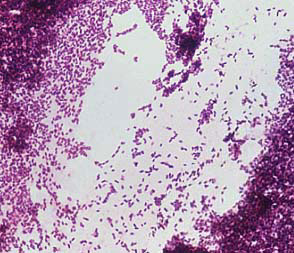
The Centers for Disease Control and Prevention (CDC) has confirmed 72 illnesses, including 13 deaths, from listeriosis linked to whole melons grown by Jensen Farms in Holly, Colo. Three other deaths are currently under investigation.

Cantaloupes usually don't last for more than two weeks in the refrigerator and the melons were recalled on Sept. 14, yet health officials still are urging consumers to check to see where any whole cantaloupes are from.

"If it's not Jensen Farms, it's OK to eat. But if you're in doubt, throw it out," CDC Director Thomas Frieden said during a Wednesday briefing. The farm, which sells many of its cantaloupes under the Rocky Ford label, has ended its harvest season and is no longer producing melons this year, he said.

Federal and state officials still don't know how the cantaloupes came to be contaminated, the Food and Drug Administration's Sherri McGarry said. FDA and Colorado state officials have been investigating the farm for evidence that animals possibly strayed into the fields. They also are examining water quality, growing, harvest and processing practices and how the cantaloupes were stored.

"This is the deadliest outbreak of a foodborne disease that we've identified in more than a decade," Frieden said.
It is also the largest recent listeria outbreak, he added.
The current CDC death toll: Colorado, 2; Kansas, 1; Maryland, 1; Missouri, 1; Nebraska, 1; New Mexico, 4; Oklahoma, 1; and Texas, 2. Tests are pending on three other deaths in Wyoming, New Mexico and Kansas.
The listeria bacteria kill approximately 30% of victims and send 90% of the elderly people who get listeriosis to the hospital.
Listeria is usually diagnosed definitively through a blood culture or test of cerebrospinal fluid and usually takes one to three days for results, said Barbara Mahon, a medical epidemiologist with the CDC. It's usually treated with antibiotics, administered quickly for any high-risk people when there's a suspicion of listeriosis, Mahon said. If the possibility of listeriosis is low, she said, antibiotic treatment may wait until positive results come back.
In the past, listeria has been most strongly linked to deli meats and soft cheeses, not produce.
An outbreak in sprouts in 2008 sickened 20, sending 16 people to the hospital. In 2010, an outbreak in celery from SanGar Fresh Cut Produce in Texas sickened 10 people and killed five.
Since 1990, melons have caused at least 36 outbreaks of foodborne illnesses, mostly salmonella, "although this one is the first attributed to listeria," said Caroline Smith DeWaal, food-safety director at the non-profit Center for the Science in the Public Interest. "This pathogen is super-virulent for older or immune-compromised consumers. … It has a high mortality rate of 16% and can also cause miscarriages when pregnant women are exposed."
Source : http://yourlife.usatoday.com/fitness-food/safety/story/2011-09-28/Experts-fear-listeria-may-be-moving-into-produce/50589766/1?csp=ylf
